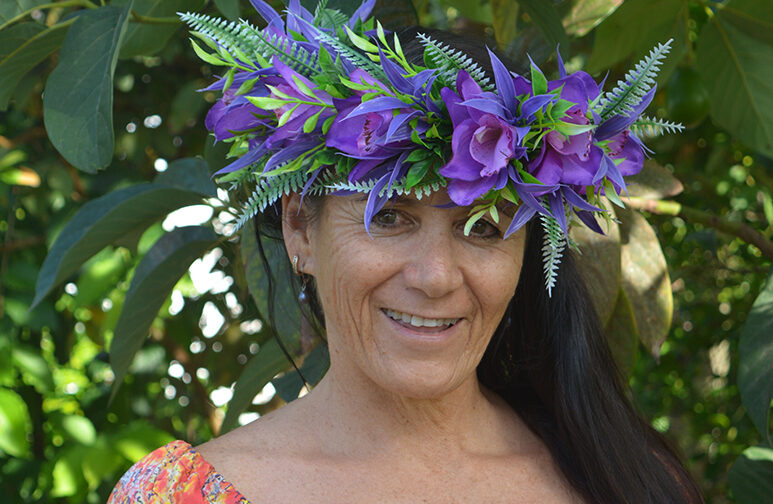Preserving culture: Finding the balance between tradition and progress
Monday 24 June 2024 | Written by Ruta Tangiiau Mave | Published in Opinion

Ruta Tangiiau Mave.
Where does culture start? When does the culture of our bygone days or our more recent culture be decided as to what matters now? The discussion on this topic arose with regards to female carvers in Hawaii at the festival held to celebrate all our Pacific cultures together, writes Ruta Mave.
According to history, we can all trace our ancestry back to the seafaring Lapita people who settled in Samoa and Tonga roughly by 1000BC. In Rarotonga, the arrival of two chiefs from Tahiti and Samoa define much of our present-day dance and practices.
Hawaii islands were one of the last to be populated in the Pacific and they have proven you must sail against the trade winds from east Polynesia of Tahiti and the Marquese islands.
We are related, we have ancestry and history, we have similarities and we have evolved differently over time to form our own cultures. The arrival of Europeans in Polynesia has created a homogenisation of cultures here and across the globe creating a melting pot where communication co-operation and calm cohesion has created thriving communities.
The best example of intervening differences to create a different and ultimately highly accepted result is the making of yoghurt. Butter is changed by the introduction of a bacteria culture which sours and thickens the butter to a tart tasting product which is yoghurt. From an accidental disaster for butter to a world class health related food source desired around the world by many diverse cultures. Interestingly, if too much culture is used the bacteria will be crowded and this will produce a slimy sour taste in the mouth.
So the question remains when does our cultural ways start? The debate online of the rights and the cultural rules for the festival was varied and intense. Some called the colonialism of the islands by Europeans responsible for the loss of ‘culture’. Some said introduction of women to past cultural practices can be traced to the Europeans. The changing of our succession as Ariki, Matiapo and Rangatira protocols from the eldest male child to the eldest child was made by the missionaries. Should we go back to our past culture days and declare all present female Ariki leaders defunct and un-cultural?
Takitumu Primary School had predominantly more females drumming at the Emo’anga Tangi Kaara – Pump the beats drumming challenge because not many boys were wanting to commit to practice which is held during the lunch breaks. The event is valuable for the preservation of cultural talents and knowledge to be passed on to the younger generation. If we incur rigid rules that only boys/tane can play the drums then we are certain to doom our future to the loss of such cultural practices.
During World War II when most men were out fighting overseas, previous male dominated industrial jobs were left without a labour force. Women were enlisted to help the war effort by taking on the tasks. They not only did well but exceeded the output by the men.
At the end of the war the men returned and the expectation for women to go back to their pre-war culture of house bound duties and child care left a sour taste in some mouths.
When we talk about culture do we forget the changes made and revert back to the basic butter of before or do we cultivate change and adapt evolve to healthy yoghurt?
If we say our pre-European intervention culture needs to be recognised, how far do we take it? Do we give up our heated plumbing, Nike shoes and Toyota trucks?
If we are serious about restoring and respecting our culture, why don’t we grow our own taro and drink nu instead of eating imported packaged food and drinking red bull?
Where do we draw the line of accepting our advances in living standards and re-engaging with our past cultural practices?
Is our past culture only for the display and demonstration for tourists’ entertainment or is it more? How proud are we of our past, our history, our local culture which sixty years ago was alive and vibrant under the guidance of Europeans.
In 1965 we got our independence and quickly dropped our natural practices to embrace the worst of European culture – greed and love of money. We now have the worst health statistics, the highest child obesity. We are a benefit dependent culture of handouts governed by unabashed corrupt leaders. We choose this path by sacrificing who were and what we represent.
If culture is a balance of what the majority of the community recognise represents them, how can we preserve our old culture and keep our te reo alive, while we choose to use colonial names like Brown, Browne, and Marsters? Why is the name of a polygamist more important than recognising the lost matriarchal names of our heritage?














































